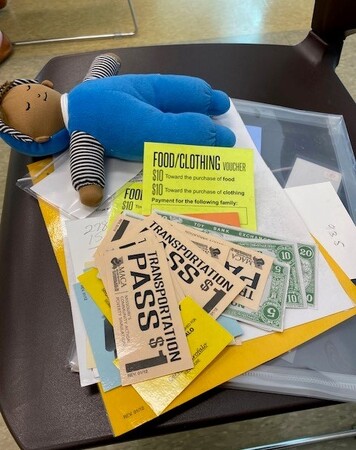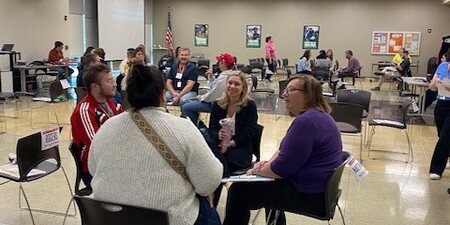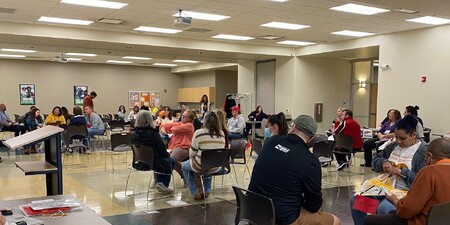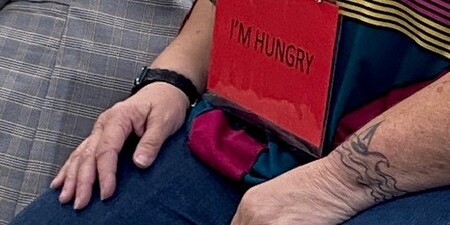
Pretending to Live in Poverty is No Game
Kane County Connects Staff 10/4/2023 12:00PM
I was a 19-year-old single mother of a 2-year-old with no income or child support. I lived in a shelter with my boyfriend who had a job and a car in need of repair, both of which he later lost. I had to collect food benefits to feed my child, find housing, pay for clothes and medicine and attend a job training class to qualify for some of those benefits, with no transportation or child care.
This was the identity I was given during the Northern Illinois Food Bank’s recent Poverty Simulation. During the two-hour exercise, participants role-played a month in poverty. Event organizers cautioned the group from the start; the gathering was not going to be a game.
Along with their new identities, people who attended in the Poverty Simulation were given a check list of essential social services with no guidance on how to find them and cross them off the list. Some participants were grouped together as a large family, were given profiles of children and others as seniors with disabilities. There also were a few single people trying to make it on their own.
During the simulation, individuals navigated stations for benefits or necessities with a time limit and usually a long line. If you forgot to get food vouchers, you wore a sign that said “I’m hungry.” If you couldn’t pay your rent in time, you were evicted. If you didn’t get a transportation voucher, you missed work and were fired. There was also a pawn shop with an employee who was less than sympathetic to the desperation to raise cash.
Along the way, I was told to sit down and wait my turn; I was in the wrong location; I had incomplete paperwork; I didn’t qualify; I waited too long to apply or was told to come back tomorrow as the office closed for the day.
In the end, the people who took part in the Poverty Simulation readily admitted to swallowing a strong dose of reality surrounding the obstacles and stress of people living with limited resources.
The group said they saw a need to improve the connection and coordination of social service agencies to lessen the burden on low income individuals and families. That included better advertising or direction to government and non-profit assistance locations and improved customer service (hours/days) the agencies providing help are open.
In Kane County, individuals seeking assistance can call 211 to be connected to a local expert who can identify your needs and connect you to resources.
There also is the Kane County Health Department’s Integrated Referral and Intake System (IRIS), an online program connecting people to local community service organizations. Learn more at https://www.kanehealth.com/AOK/Pages/Initiatives-Pages/IRIS.aspx
The Northern Illinois Food Bank works with over 900 pantries, mobile food trucks markets and soup kitchens. Learn more about how they can help at https://solvehungertoday.org/.
Tags:






